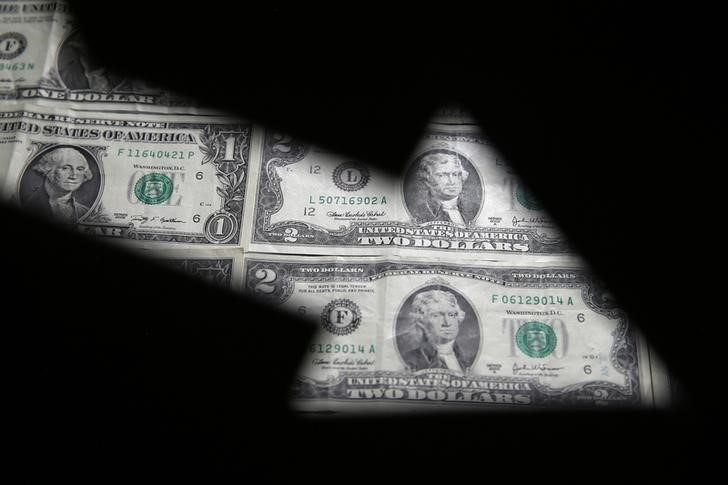Investing.com -- The dollar was higher against haven currencies and lower against higher-yielders early Friday in Europe, holding gains made Thursday in broad rally in risk assets after signs of robust job creation in the U.S. last month.
The ADP (NASDAQ:ADP) payrolls report blew past expectations, with a 195,000 increase in private jobs in the month, well ahead of forecasts for a 148,000 increase. It was followed by a stronger-than-expected non-manufacturing PMI report from the Institute of Supply Management. The news bolstered optimism in markets that were already rising on the back of news that China and the U.S. will resume trade talks in October.
Taken together, the news chipped away at fears of a recession without denting confidence that both the Federal Reserve and European Central Bank will announce significant easings of monetary policy later this month.
Risk assets seem set for further gains later today if the official labor market report, due at 8:30 AM ET (1230 GMT) today, confirms that trend.
By 2:45 AM ET, the dollar was 0.1% higher against both the Swiss franc and yen, while giving up ground against the loonie, Aussie and kiwi.
Sterling, meanwhile, was consolidating gains after a rising more than 3 cents this week from trough to peak as Prime Minister Boris Johnson’s plans to take the U.K. out of the EU at all costs by Oct. 31 have come unstuck. Overnight reports suggested that the two biggest opposition in parties in Parliament, the left-wing Labour Party and the Scottish National Party, will push for a general election on Oct. 29, two days before Brexit day.
The dollar also weakened against many emerging market currencies, most notably falling to its lowest in nearly two weeks against the Chinese yuan.
However, not all were convinced of the risk rally’s durability. ING analyst Robert Carnell was dismissive of the markets “taking a pre-weekend happy-pill”.
“While talks are better than no talks, ask yourself this question: ‘Is the US about to scale back its demands on China to secure a trade deal?’ If not, ‘Is China about to relinquish its stance on state-owned enterprises or intellectual property?’” Carnell said in a morning note. “If the answer to either of these questions is "No", then this is not a rally you should probably be chasing.”
